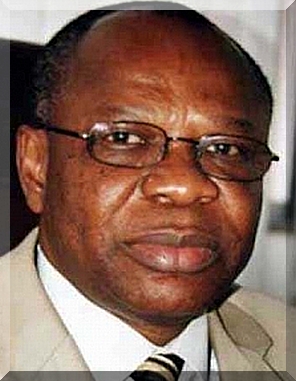Iwu Sacking: Who is Controlling Nigeria's Democracy?

 |
| Maurice Iwu, former INEC Chair |
Brief Review
The Electoral Reform Commission created by President Yar'Adua to review the flawed 2007 elections determined in March 2009 that the Presidency relinquish the power to select the INEC Chair in addition to other suggestions. While Yar'Adua failed to adopt any of the recommendations of the Commission, Jonathan set the stage for reform of the Electoral Act.
Despite this, many questioned whether changes to the Electoral Act would guarantee a free and fair 2011 election season. Jonathan constantly argued that it is not who controls INEC that matters but whether or not the rules are followed that is crucial for Nigerian democracy. In interviews given to the foreign press, he referred to recently held elections in Anambra State and Abuja as evidence that fair elections are possible in Nigeria. His comments implied that other elements, and not Iwu, were the reason for Nigeria's problematic elections. During those same interviews, Jonathan circumvented questions of whether Iwu would be fired in order to ensure a better electoral process in the future.
What does this mean for 2011?
So, the sacking of Iwu suggests that even Jonathan realized that for the credibility of the upcoming electoral season, Iwu had to go. To many, Iwu represented what was wrong with Nigeria - an individual that clearly failed to do their job (in this case, hold credible elections) but managed to retain his position, and the perks that go along with it. Various groups and individuals have been arguing for his removal from office and even the United States government went as far as publicly declaring that it wanted Iwu removed from INEC.
However, even with the removal of Iwu, there is still a possibility that upcoming elections will not be credible. As Jonathan himself hinted in his public discussions, Iwu might not have been the problem as there are those who have the money and power to circumvent the people's vote. Already, the Nigerian Police publicly chided politicians for stockpiling weapons in anticipation of elections which are typically a violent and tense time across the nation. It is also hard to ignore that individuals like James Ibori have managed to avoid arrest when their 'supporters' (paid or otherwise) thwart attempts by the police to make arrests. Thus, it is very reasonable that individuals like Ibori will, as they have done in the past, attempt to use their influence to manipulate the outcomes of elections.
The U.S. factor
America's 'demand' that Iwu be removed cannot be downplayed as a potentially crucial factor in his sacking. Ever since Jonathan became Acting President, the Obama administration has gone above and beyond in making statements about Nigerian politics and publicly imposing its opinions in domestic issues. The removal of Iwu, while a positive for Nigerian democracy, given Iwu's track record, does not forebode well for the credibility of the Jonathan administration and possibly whoever becomes President in 2011. Iwu's removal will be classified as America's wish and already, some like the media outlet NEXT, have headlines stating "Jonathan grants America's request". Being seen as a puppet implies weakness and that was a problem for Jonathan's predecessor Yar'Adua. That perception of a weak President not only colored domestic politics but created international problems for the country as well.
Jonathan would be well advised to not create the impression that he works not for the people but for international interests. Furthermore, whoever becomes President in 2011 will have their mandate questioned and considered the result of American interference - a possibility that Nigeria cannot afford as it struggles to create a democratic system and tradition fine tuned to its unique characteristics.
Although Jonathan promised that 2011 elections will be fair and staked his reputation on that outcome, there remains a possibility that he might not deliver. Given that the police, an arm of the federal government, can be subverted and that the nation has a history of powerful figures usurping elections, Jonathan has a tough road ahead of him. His calls to the Nigerian public to not allow their vote to be corruptly manipulated is the best way to limit the stealing of votes. Already, groups young Nigerians are pushing their peers to register to vote and encouraging them to pay attention to election news.
Nigerians must definitely take ownership of the electoral process as the 2011 elections are gearing up to be the most important elections of Nigeria's existence. Hopefully, Nigerians working to protect their votes, a government working to ensure that subversive elements are unsuccessful and the removal of detrimental figures like Iwu who are deemed to be an impediment to democracy will go a long way to creating an environment were Nigeria can get one step closer to creating a democratic system that works. Foreign governments and actors showing restraint in their comments about Nigeria, its democracy and security would equally go a long way in helping Nigerian arrive at a better democracy, as well.
By Solomon Sydelle,
Nigerian Curiosity
